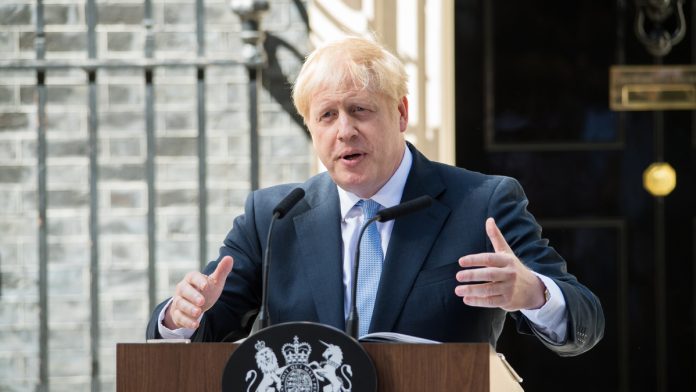- Pound (GBP) sees weak recovery, Brexit remains in focus with UK insisting that an outline deal is ready by the end of July
- Boris Johnson infrastructure investment plan in focus with UK GDP data expected to show -1.6% in Q1 yoy
- Euro (Eur) boosted by German inflation figures on Monday, Eurozone inflation in focus today.
- Pound Euro exchange rate trades +0.07% at €1.0945
The Pound fell versus the Euro on Monday, settling -0.3% at €1.0936, picking up slightly from a fresh 3 month low of €1.0897 struck earlier in the session.
The Pound was under pressure in the previous session as coronavirus concerns after second lockdown in Leicester, and Brexit fears dragged on demand for Sterling. This overshadowed optimism surrounding Boris Johnson’s fiscal spending plans which are due to be announced today.
Today investors will also be looking towards the release of UK GDP data. Analysts are expecting the figures to confirm the last reading of -1.6% contraction in the first three months of the year on a annual basis. This only captures the first week or so of lock down, so is considered old news. The worst hit to the British economy will be seen in the second quarter, when the UK was in lockdown for the whole of April and most of May, with restrictions only being eased in June.
The Euro trended higher on Monday following upbeat German inflation data. Consumer prices rose in the Eurozone’s largest economy by more than expected in June. The increase was partly owing to higher prices charged by services having to enforce stricter hygiene standards as the country eased lock down measures and reopened.
German inflation increased 0.8% in June month on month, up from 0.7% in May and above the 0.4% analysts forecast.
Attention will now turn to eurozone inflation. The coronavirus crisis has sent inflation to close to zero, with Isabel Schnabel, a German ECB policymaker warning that inflation could fall below 0.
Analysts are forecasting a 0.1% increase in inflation compared to last year. However, after both Spanish and German inflation readings beat forecasts there is a good chance of an upbeat reading, which could boost the euro.





